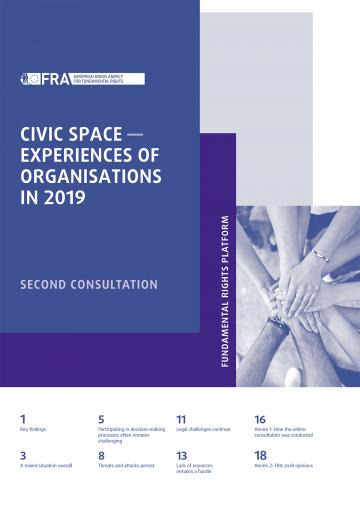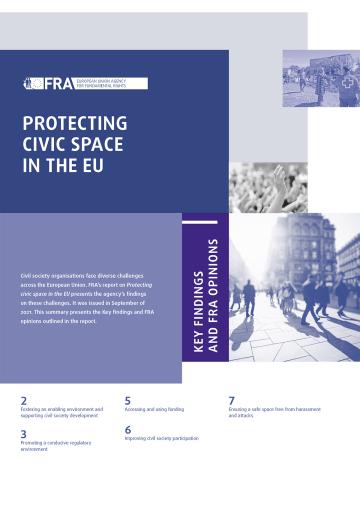The second consultation, again conducted online, provides a snapshot of the situation in 2019. It shows that many of the CSOs that FRA cooperates with continue to face challenges in their daily work.
FRA started an annual consultation with organisations participating in its Fundamental Rights Platform (FRP) in 2018, focusing on the challenges they experience in their daily work. The consultation followed the publication of FRA’s 2018 report on Challenges facing civil society working on human rights in the EU, which highlighted different areas of concern, based on data collected by its FRANET research network and expert interviews.
The second FRP consultation, again conducted online, provides a snapshot of the situation in 2019. This paper summarises the key findings reflecting the views and experiences of 205 CSOs who participated in the second survey. (The agency invited all 742 organisations in the platform database to do so.) The paper reports aggregate figures, given that the response rate per country would not allow for a representative representation of country data.






